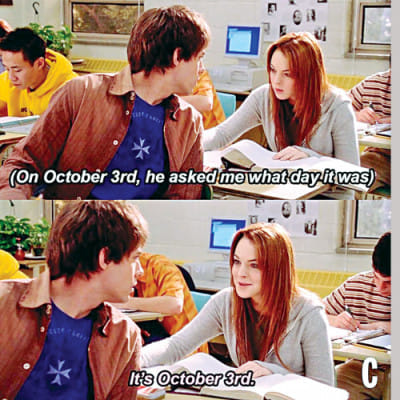Why call it a “chick flick”?

After a busy week, I like to take a night off and relax by falling asleep to movies and the majority of the movies I enjoy seem to fall under a category coined as "chick flicks". Recently I came across an Instagram post that questioned the coinage of this term. Somehow, before this, I had never quite considered why a particular set of movies are deemed as "chick flicks" or why a lot of people seem to look down upon it.
A simple Google search showed me that the term "chick flick" is essentially an informal and derogatory term that describes "a film which appeals to young women". Although films marketed towards a single gender might be problematic in itself but that is going to require a whole different article discussing how such adjectives may further perpetuate gender stereotypes. My issue with the definition of "chick flick" lies in the negative connotation held by the term.
Top chick flick movies include movies such as The Devil Wears Prada, Bridesmaids, Mean Girls, Clueless, and so on. A little digging would show you that the common factor in all of these movies is that they either have a mostly female cast or led by a female protagonist , and the plot also mainly discusses the issues faced by women.
The main themes of these movies circle around love and relationships (both platonic and romantic) and portrays how the main character navigates around these issues. Due to this, many might argue and say that such topics and the usual formulaic plotlines of these movies are shallow which results in the negative remarks about these movies.
Then again, what deep message do movies such as Superbad, 21 Jump Street, or The Hangover hold? These are all light-hearted movies and yet they fall under the genre "comedies" with no other adjective used to describe them. Furthermore, if you look at the list of the top movies termed as "chick flicks", which includes the ones listed above and also movies such as Legally Blonde and She's The Man, you will notice that in fact, none of these movies are shallow, and they actually deliver powerful messages to young girls.
I am not here to criticise any of these movies. My only question is, why do we need to use an extra adjective with a negative connotation to describe comedy movies with a female protagonist/cast?
This question seems to be answered by the famous feminist journalist, Gloria Steinem, who wrote in a March, 2017 opinion piece published in The New York Times regarding this same issue. She writes, "I realized the problem began with the fact that adjectives are mostly required of the less powerful. Thus, there are 'novelists' and 'female novelists', 'African-American doctors' but not 'European-American doctors. As has been true forever, the person with the power takes the noun, and the norm, while the less powerful requires an adjective."
It's about time to let go of this whole idea that anything enjoyed by women is something to look down upon. If completely letting go of the term "chick flick" is not possible, we can at least start scraping off the negativity surrounding it. Anyone can enjoy a chick flick.
Tasnim Odrika has only one personality trait and that is cats. Share ideas for new personality traits with her at [email protected]

 For all latest news, follow The Daily Star's Google News channel.
For all latest news, follow The Daily Star's Google News channel. 



Comments